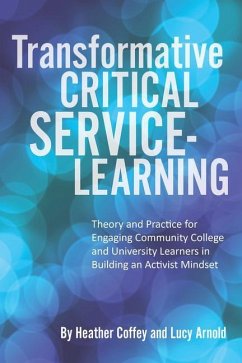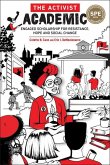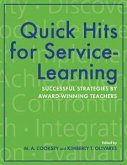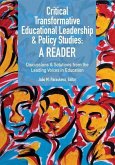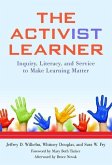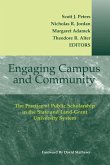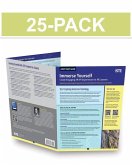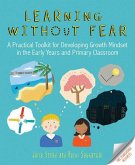A 2023 SPE Outstanding Book Honorable Mention Transformative Critical Service-Learning offers hands-on tools for implementing, reflecting on, and assessing critical service-learning in classrooms and community spaces. Answering a need from practitioners for a practical tool for making sense of critical service-learning, the authors introduce the Critical Service-Learning Implementation Model as a way to encourage conversations among stakeholders. Materials include specific criteria to examine, examples of application and context, and ways to incorporate the model into reflective practices. Valuing partnerships, reflection, and analysis of power dynamics, the research and strategies offered here provide an entry point for faculty new to critical service-learning, while also offering new ideas and tools for long-time practitioners. Chapters offer particular attention to strategies for engaging students, syllabus development, and reflective cycles. Additionally, the authors offer a model for faculty development in the area of critical service-learning at the institutional level, including suggestions for faculty and administrators interested in increasing engagement with social justice and community spaces. As institutions of higher education are focusing more on the ways in which they can meet the needs of the communities surrounding their campuses, The Carnegie Foundation's Elective Classification for Community Engagement provides a special-purpose designation for higher education institutions with commitments in the area of community engagement. Universities must commit to institutional change in order to improve the outcomes for the communities surrounding the campus. The classification framework represents best practices in the field and encourages continuous improvement through periodic re-classification. Service-learning has been identified as one of the more effective methods for engaging undergraduate and graduate students in community engaged scholarship, which facilitates development of critical inquiry, understanding needs assessment, and deep reflection on inequality. The authors intend this book to benefit university faculty endeavoring to begin or develop service-learning courses, higher education administrators who want to train and engage university faculty in adopting a more community engaged teaching model, and P-12 teachers, who often serve as community partners with higher education institutions to facilitate justice-oriented approaches to teaching their diverse students. Perfect for courses such as: Critical Thinking and Communication/Service-Learning │ Service-Learning Capstone │ Pathways to Effective Community Engagement │ School and Community Collaboration │ Teaching to Transform Society │ Food, Environment, and Sustainability │ Race and the Right to Vote in the US │ Education and Society │ Environmental Education │ Race, Place, and Memory

